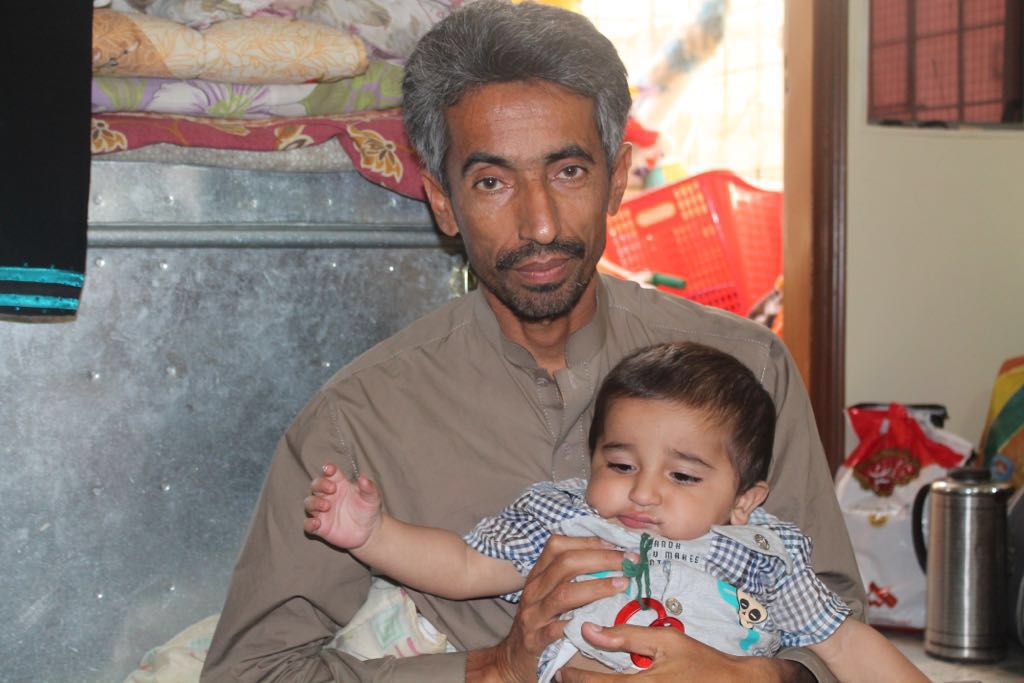He was devastated after coming across the Pulitzer Prize winning photograph of a starving Sudanese child and a vulture waiting in the background to feed on her body in case she died.
“With all the riches of the world, with all the power the mankind has achieved, how come we fail to feed this child?” Master Noor Ahmad told his politician niece, Karima Baloch, after someone showed him Kevin Carter’s famous photograph.
Little did he knew his own body would be dumped in the wilderness for vultures and other animals to feed on.
The body was two to three days old when found dumped in a desolate area of Mirabad, district Kech. It bore no bullet wounds. No nibbling by vultures. But there were marks of torture everywhere.
On July 28, 2016, he was travelling back to his hometown from the Turbat city on a mini-bus when their vehicle was stopped in Gennah, a small town on Turbat suburbs.
Paramilitary Frontier Corps (FC) personnel offloaded all the 12 passengers, lined them up and asked them to present their identity cards. After confirming Noor Ahmad’s identity, FC soldiers bundled him into a military truck and sped away.
He became another name on the extended list of Baloch missing persons. On January 2, 2018, he stopped being missing and made appearance on another extended list: kill-and-dump victims.
If it was not for his relation with Karima Baloch, the first woman Chairperson of the Baloch Students Organization (BSO), he might have lived longer. Or maybe not. There are innumerable ways to get yourself killed in Balochistan. He was a teacher, after all. Dozens of schoolteachers, including Baitullah who was Noor Ahmad’s friend, have been killed for just being schoolteachers.
“Everyone in Pullabad knew him as The Master (a euphemism for a teacher in Balochistan). No one would call him by his name,” says Karima, who now lives in Canada where she has applied for political asylum.
When she was packed and ready to fly to Canada, her uncle gave her a short lecture. “They will blackmail you by harassing your family back here. They’ll say if you continue your politics in Canada, we’ll punish your family. Don’t be weak. Do not give up on your stance even if they take me away or any other family member.”
Karima Baloch says her uncle had strong political views but was not affiliated with any group. He had been a government schoolteacher for the last 15 years or more and that was his life.
“He was one of the most innocent guys you’d come across in your life,” says Sameer Mehrab, a writer and Noor Ahmad’s nephew. “He was the type that if you say I need to go to a hospital he would say let’s go. He would take a loan from someone else to give you a loan”.
Not just his relatives, residents of the sketchy town of Pullabad find it hard to understand why of all Noor Ahmad was chosen to be taken and killed. “They’ve killed so many people. I don’t say others deserve such a fate, but why The Master? He was just a kind-hearted fellow. A schoolteacher. A social worker who didn’t knew he was doing social work,” says Rahim Bux*, Noor Ahmad’s neighbor, on condition of anonymity.
Noor Ahmad has left six children behind. Shaihak, the youngest of all, was six months old when his father was taken away. He is now around two years and has already started baby talk. He can speak just one of the two words babies first learn. He cannot speak the baby version of the word father.
*The name has been changed to protect identity.
Sajid Hussain (1981-2020) was a writer and senior journalist from Balochistan. He had a degree in Economics, International Relations and English Literature from Karachi University. He had the experience of working with Pakistani newspapers Daily Times and The News International. Sajid Hussain was also the founding editor of this online magazine.



